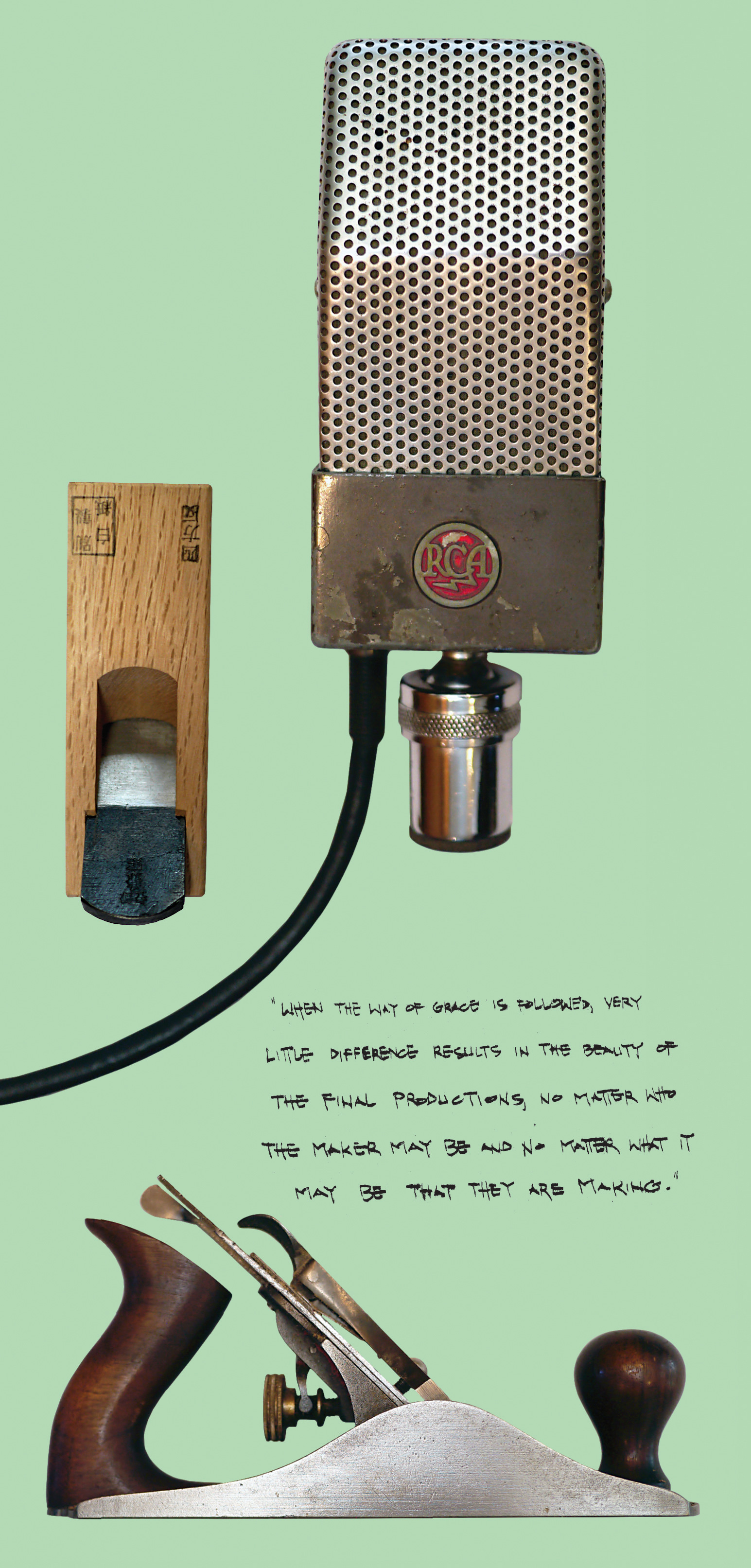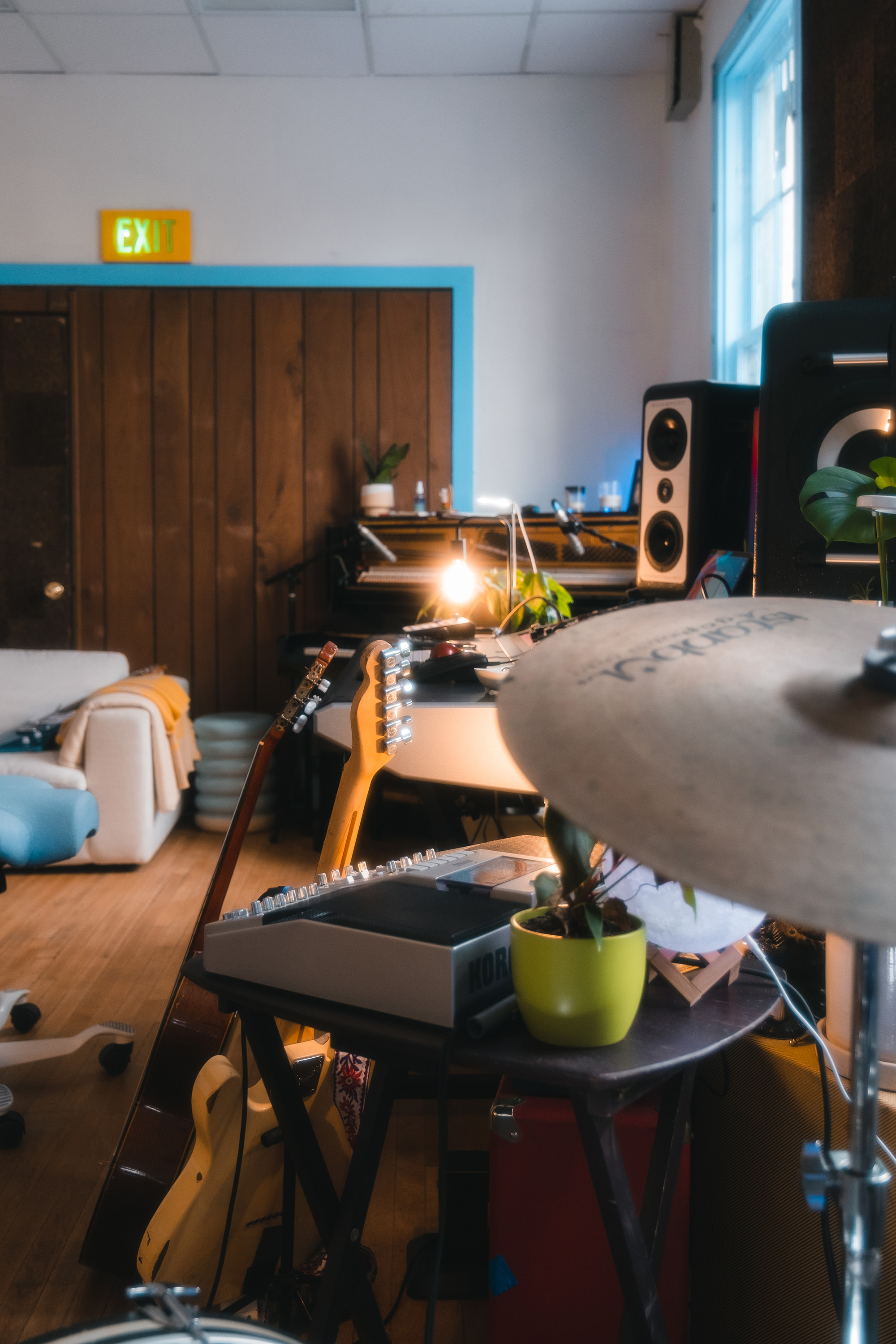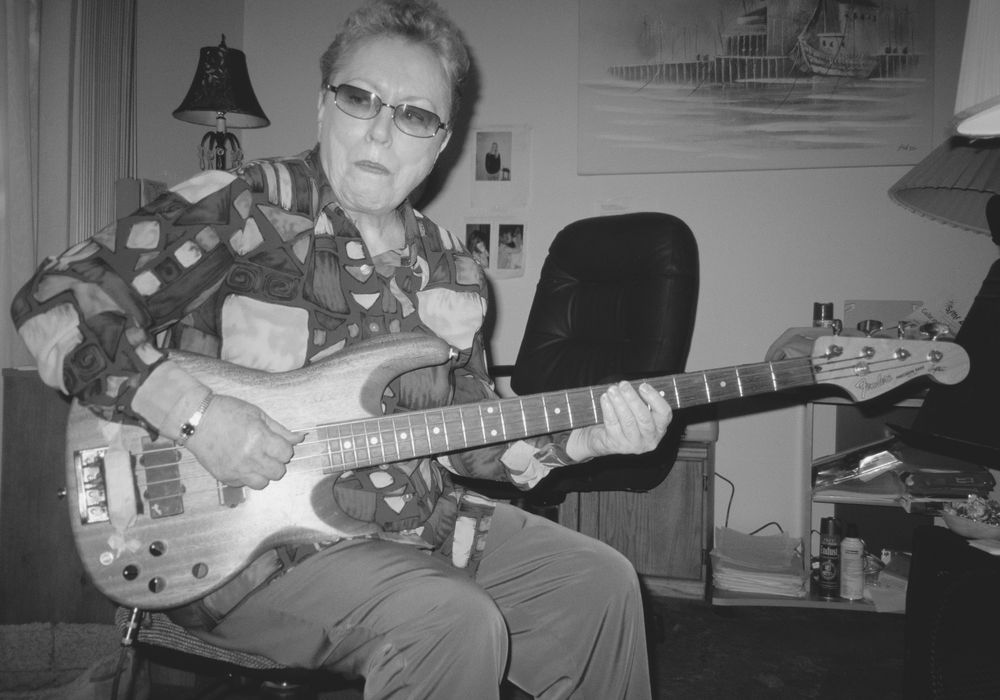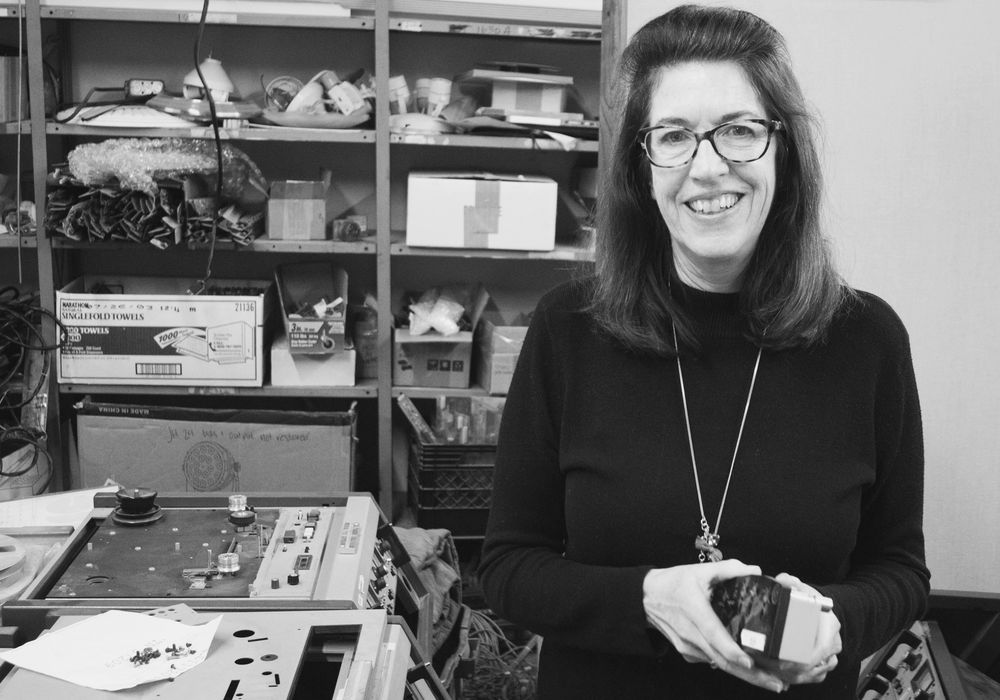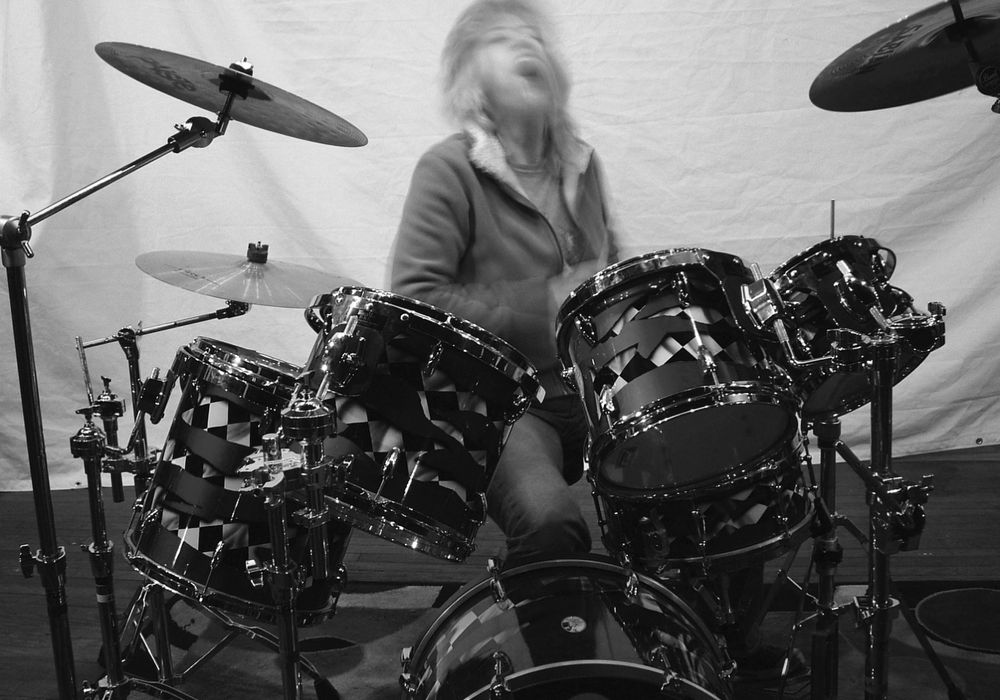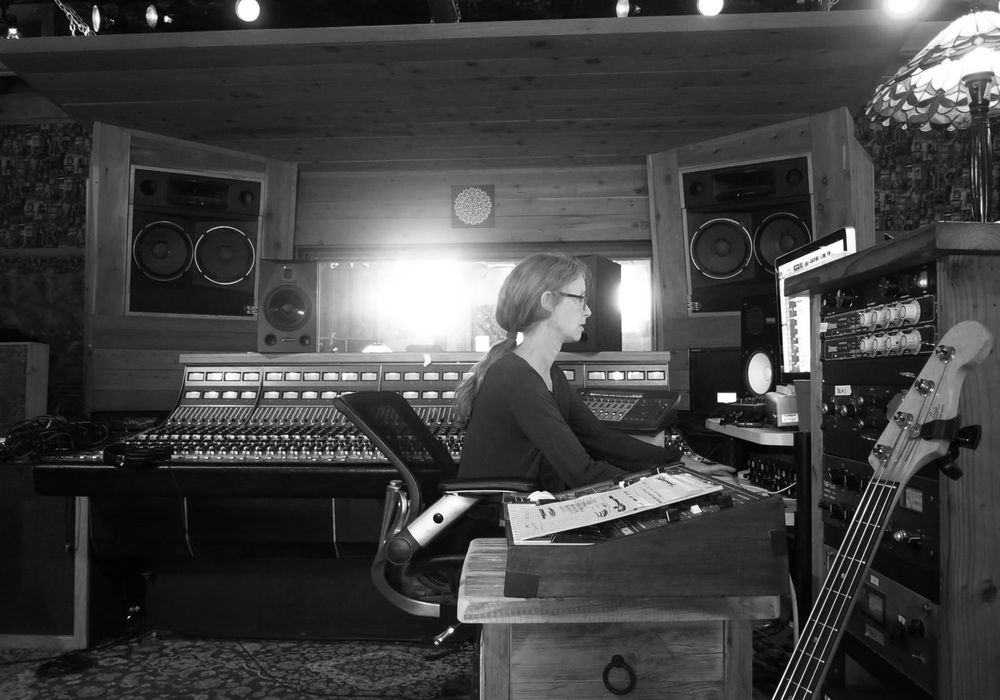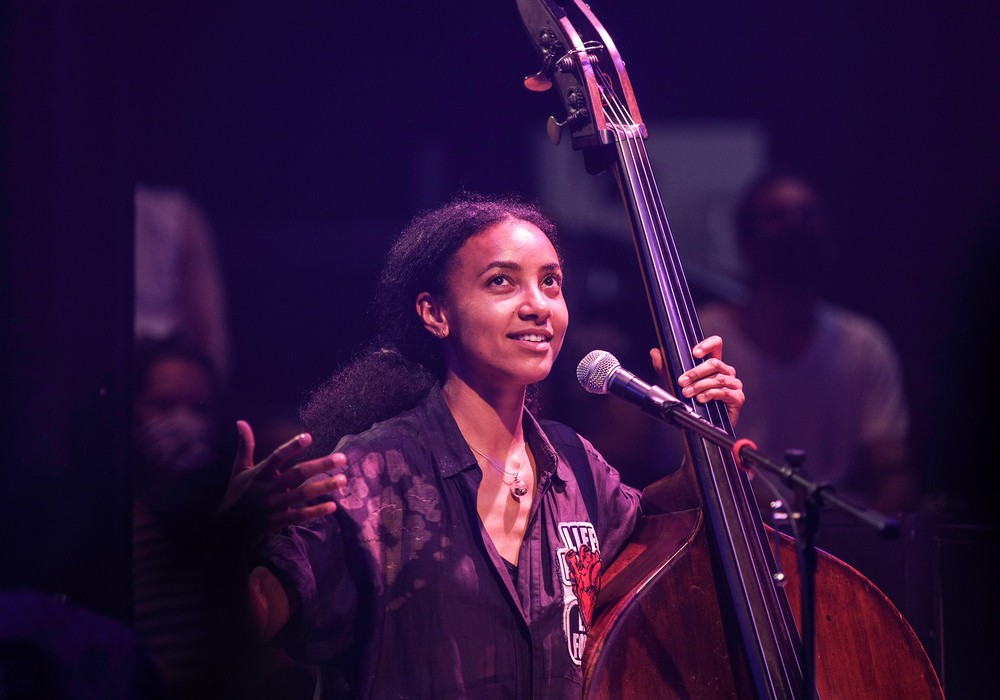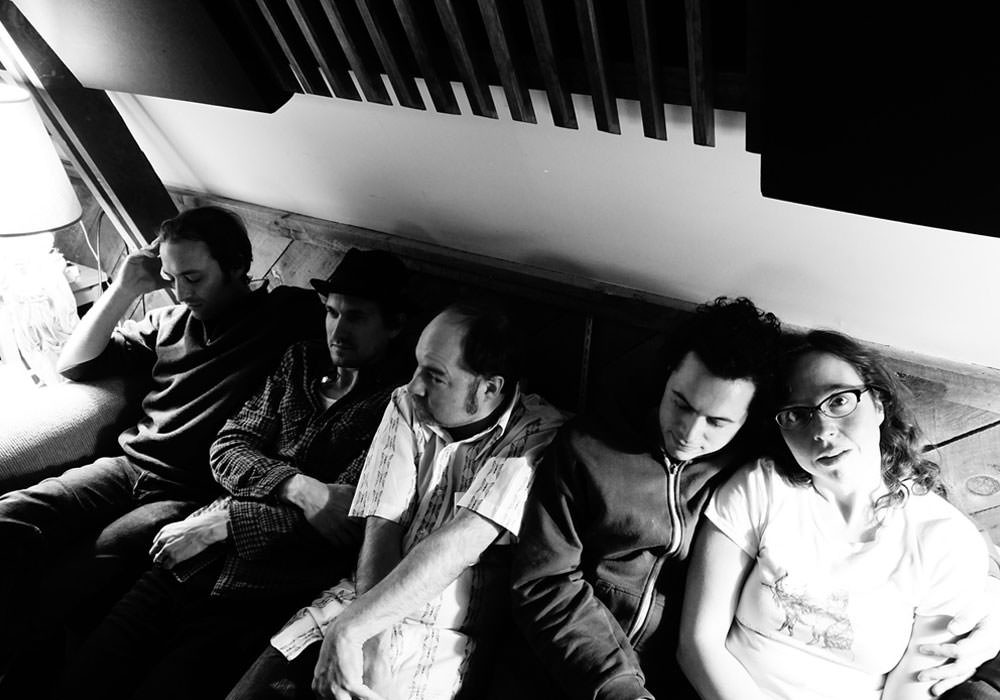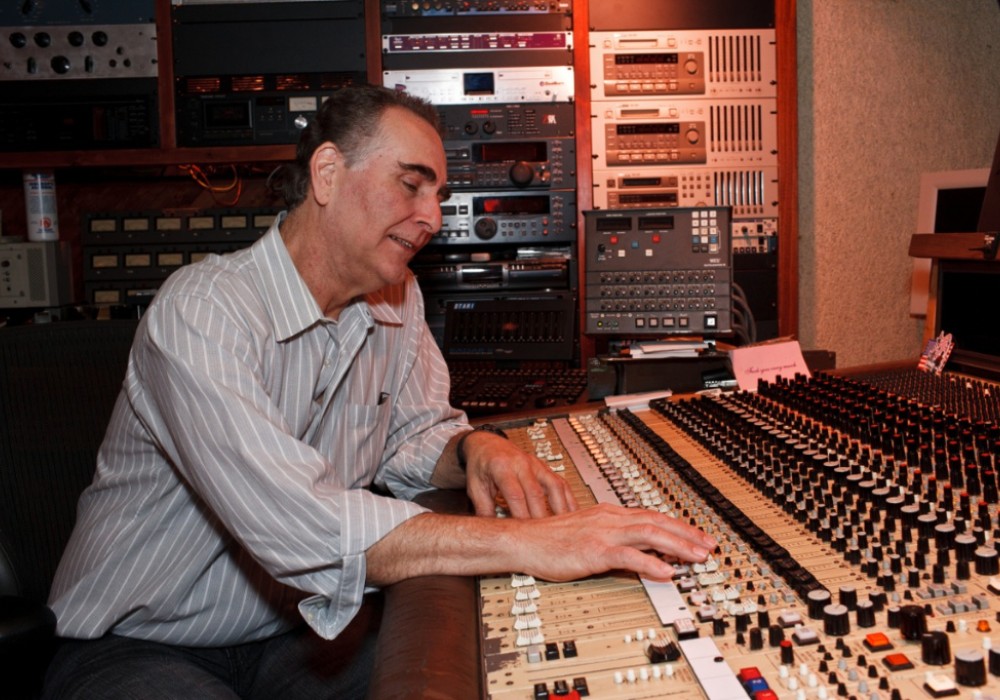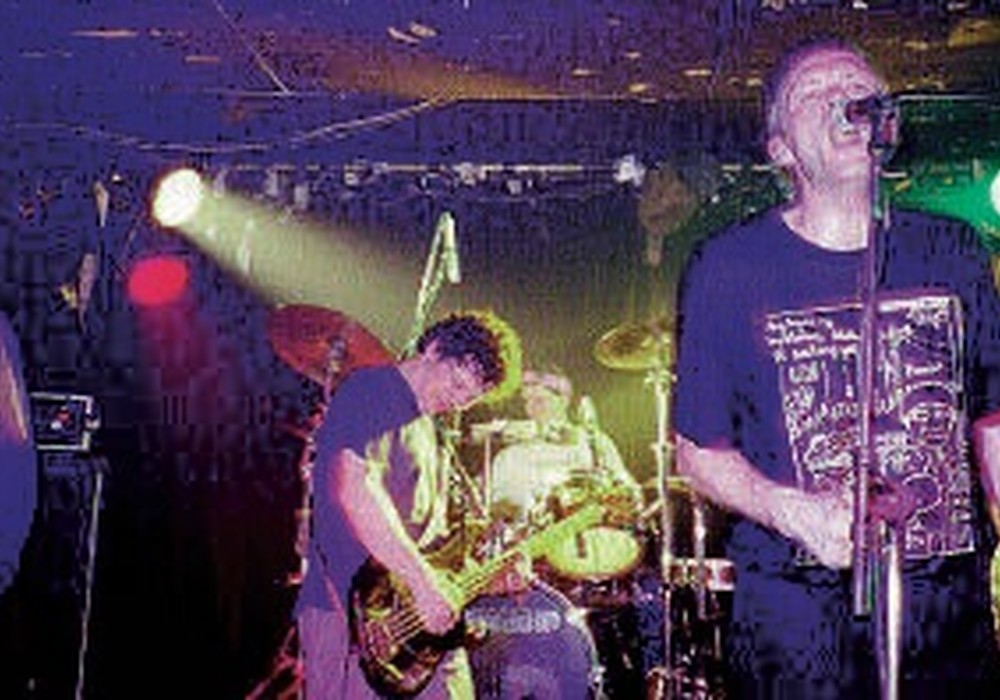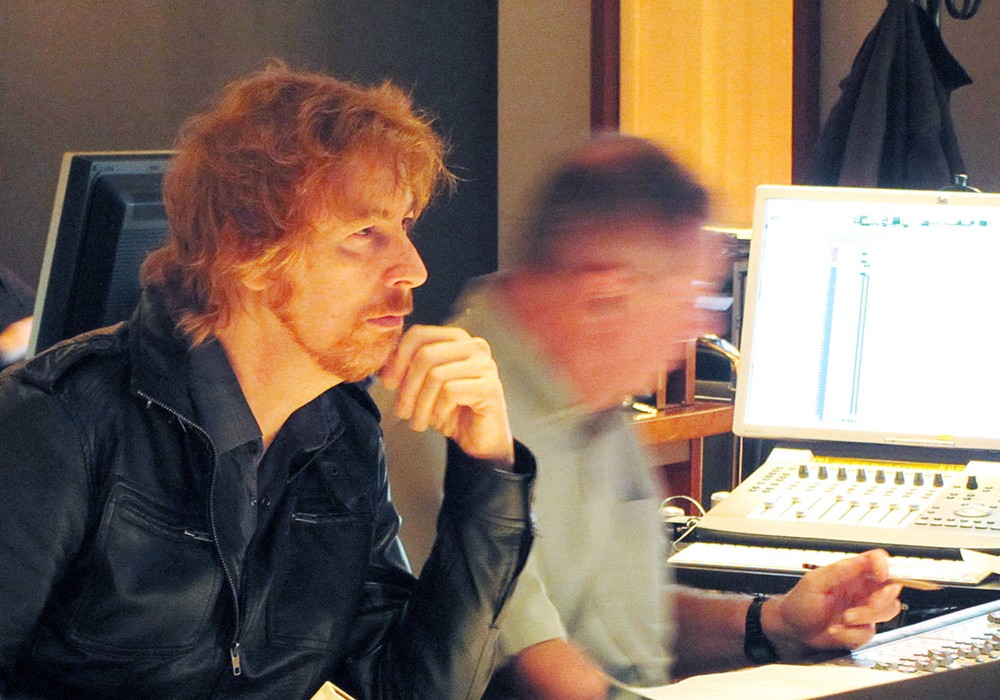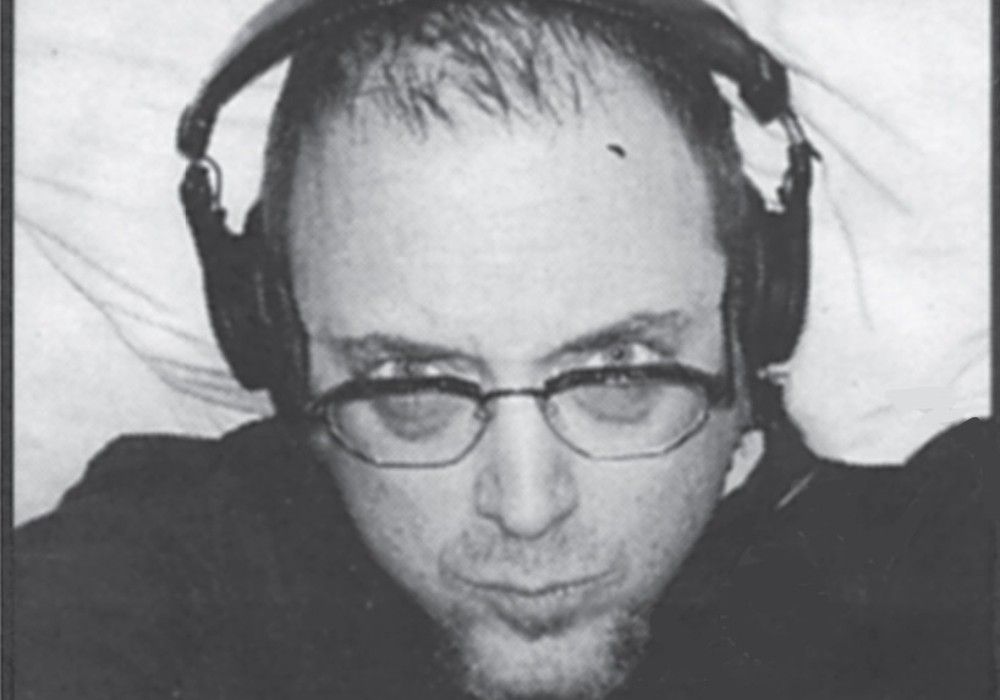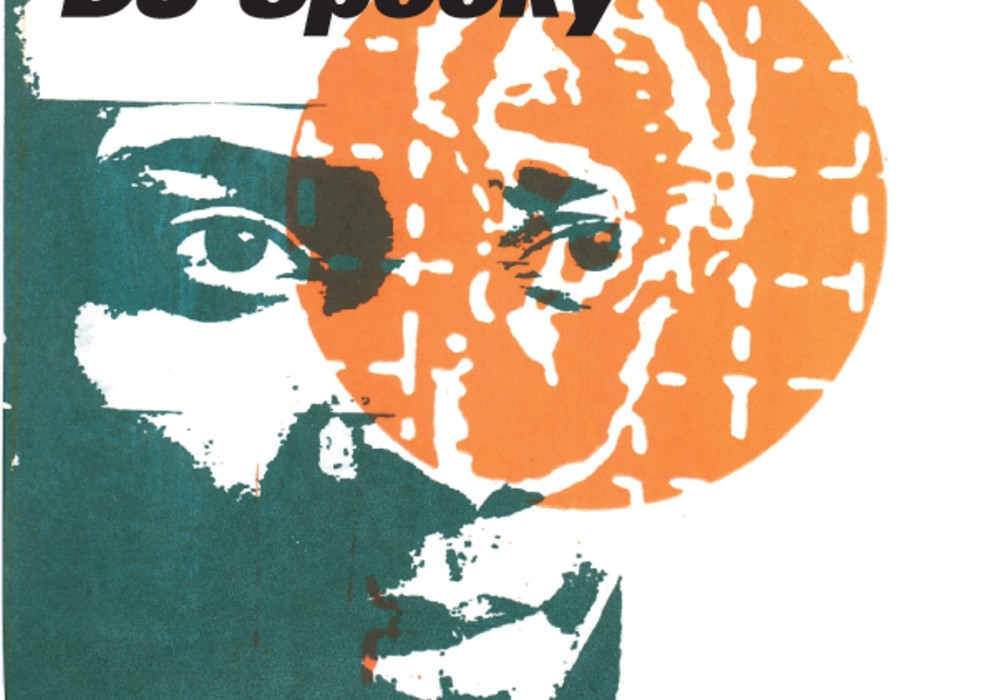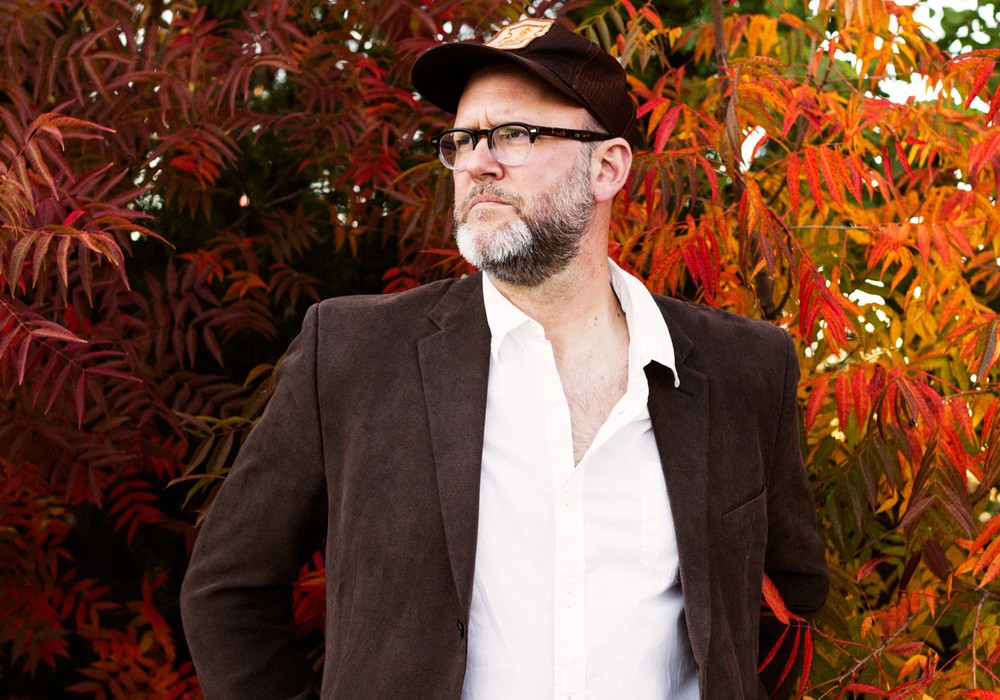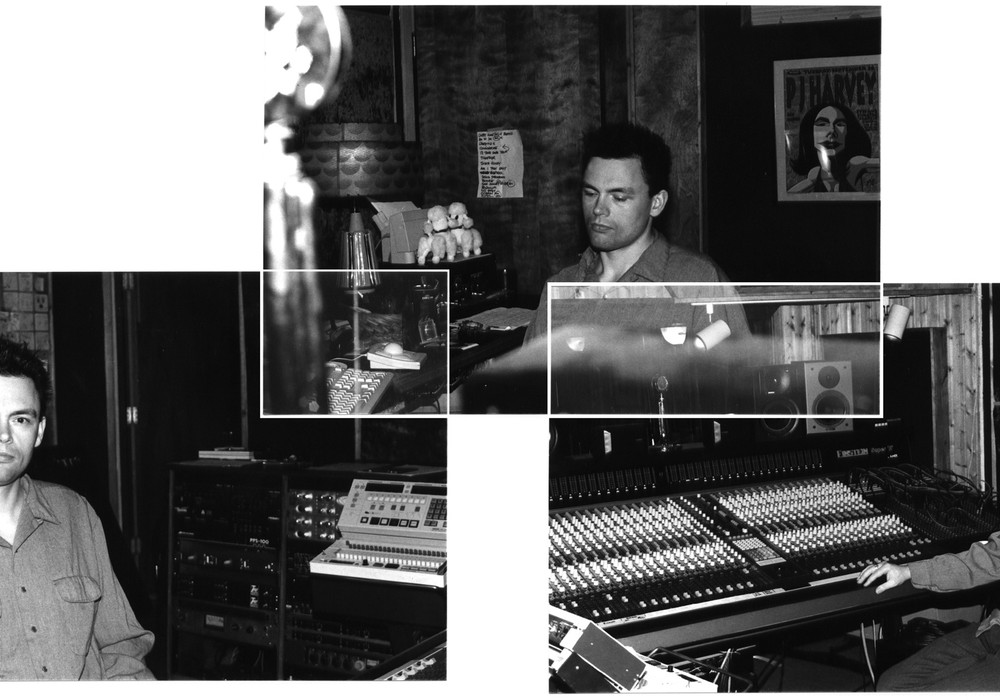Suzy Shinn was just a little kid in Wichita, Kansas, when she began exhibiting the instincts that have since made her a rising star producer and songwriter. “I forced all my friends to be in bands with me, and they hated it,” she laughs. “I would sit there and almost produce them – I’d say, ‘You have to play my bass guitar. Here’s the line.’” Shinn began on guitar in the third grade, and though she played in pep band, jazz band, as well as classical, she was most excited about channeling her heroes, Blink-182. After composing music for a friend’s poem – one of the “emo kids” that comprised her friend group – she showed her first song to her mom, who immediately encouraged her to write more. “My mom got me a MacBook for recording, including GarageBand and Logic,” she tells me. “That really inspired me.” To pursue her goals, Shinn graduated high school a year early and enrolled at Berklee College of Music. “I was in Kansas, and my dreams weren’t gonna come true there. I needed to go and be with people like me.” But she quickly found that her indie and rock preferences didn’t align with her classmates’ focus on jazz. (Though she did learn a lot from recording professors Ted Paduck and Stephen Webber, especially “to be humble and cool, and never act like you know anything,” Shinn says.) A summer internship in L.A. quickly turned into a skyrocketing, full-time career, and before long Shinn was out of the classroom and helming production for childhood favorites, such as Weezer, Fall Out Boy, and Panic! At The Disco. Over a call between a busy week of sessions, Shinn tells me about making recordings with heart, the importance of daylight in her studio, and other creative outlets that inspire her music.
PHOTO CREDIT: Suzy in her studio, using a standing desk with her guitar setup nearby. The windows are sealed with 3/4” plexiglass to allow natural light, while preventing outside noise.
You learned to record so you could upload songs to MySpace, and around the same time you first went to a Warped Tour. Was it surreal to sign with your management company, Crush Music, who were once synonymous with that era of music?
I moved out here without knowing I would move out here. I thought it was a summer internship at a recording studio, a little in-house factory place. [Songwriters] Sam “S*A*M” Hollander and Dave “Sluggo” Katz came through to produce a Blues Traveler album [Suzie Cracks the Whip], and Sam was friends with Jonathan Daniel over at Crush. We would be tracking, but we would stay and talk, and I was absorbing all these stories, info, and knowledge about bands I loved and admired – from Fall Out Boy to Boys Like Girls to Panic! At The Disco and Gym Class Heroes. That was really cool. Evan Taubenfeld was a producer, working with a Japanese rock band in the studio I worked at. I engineered for him then, and a year later he was working as a publisher at Crush. He said, “You’re really cool. What are you doing here, engineering in this weird little factory?” Eventually he signed me, and, in doing so, introduced me to Jake Sinclair, who was Butch Walker’s [Tape Op #138] engineer. Jake took me under his wing, and I got to work on all the records he was working on, either engineering or as an additional producer or writer. That whole team means the world to me. It’s so surreal. I’ll look back and realize, “Holy crap. Tom Morello posted my selfie on his Instagram yesterday. That’s not real.”
What did you pick up from engineering with Jake?
He’s an exceptional producer, songwriter, engineer, and mixer. He’s the whole package. But what I really love is wherever he goes, the drums are set up, but not in a live room far away. They’re right there; put on the headphones and they’re ready to go. The guitar is right there. The bass is right there. Just plug in. Wanna track a vocal? Go stand over there. We just have to dial it in. Everything’s all in the room, and it makes it easy to put records together, or the foundations of records. Music is a vibe, and it’s beautiful to work with what you have and what’s in front of you. He taught me that. He also showed me that it’s fun. When it feels like work, and something you hate, or you’re treating it as a job, you hear it in the song and in the tracks. But when you’re having a good time, it’s amazing and cool.
You’ve been doing some sessions in
your home over the pandemic.
What do you appreciate about non-traditional studios?
I got a good studio space about four months ago. But up until then, my living room was no longer a living room; it was a recording studio, which was fun. Sunlight, daylight – for that alone, I’d rather record in a giant living room than a soundproofed, nice recording studio. Even in my new studio, there were sound panels blocking the giant windows, and the first thing I did on day one was rip out the panels. We put up 3/4-inch plexiglass over [the windows], and it’s no issue; we get daylight. It’s a more casual, laid-back atmosphere, which takes the pressure off. Though there are also times I want [recording] to be intense – then I want to be at The Village, I want to be at United [Recording Studios]. But it gives us a feeling, wherever we are. I can record guitar anywhere. I can record vocals anywhere. If we want the huge, fancy, beautiful Capitol Studios [Tape Op #114] Studio A to record vocals, because that’s the feeling we’re going for, sure! But if they want to sit behind me on the couch and use a [Shure] SM7 [mic], that’s chill, too.
What’s the most exciting piece of equipment you’ve gotten to test out in some of those “intense” studios?
I’m sure everyone’s going to say...
